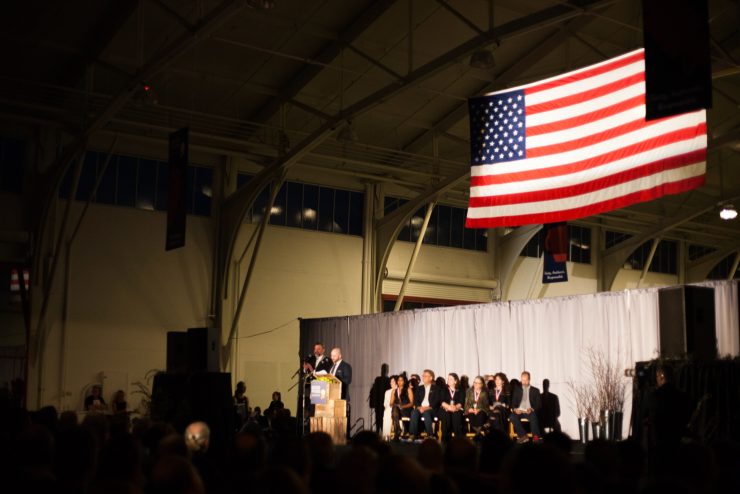
Attending the 2016 Good Food Awards, held for the first time last weekend at San Francisco’s Herbst Pavilion at Fort Mason, was an inspiring, if not familiar feeling affair. There were no surprises—for the sixth year running, Sarah Weiner and her team at the Seedling Projects have gathered the wares of outstanding food producers from 5 regions of the United States. With the “pantry” category joining the existing 12 previously existing categories (coffee, pickles, chocolate, charcuterie, etc.), an army of judges descended to reward the very best of each discipline with Good Food Awards aplenty. Over the course of an elegant, at times extravagant evening, a small handful of some of the food world’s luminaries stepped on stage to talk about the progress of slow food—its challenges, its benefits—and to encourage those in the audience and those receiving awards to continue doing exactly what they have been: producing food products that adhere to the tenants of the Slow Food movement.
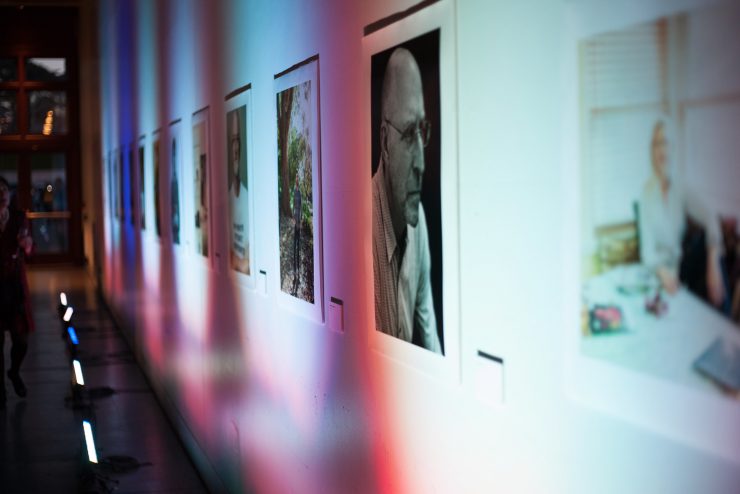
Perhaps the air of familiarity wasn’t just because of the similar format; round by round, a troop of winners from each region stepped on stage for each category lead by a singular speech from a preordained winner of their respective category. But the highlights came from some of the biggest names in attendance, a cadre of luminaries trotted out onstage to celebrate the gospel of good, slow food. Introduced by none other than Chez Panisse’s Alice Waters, Carlo Petrini—the Italian founder of the international Slow Food movement—stepped onstage to a booming, standing ovation.
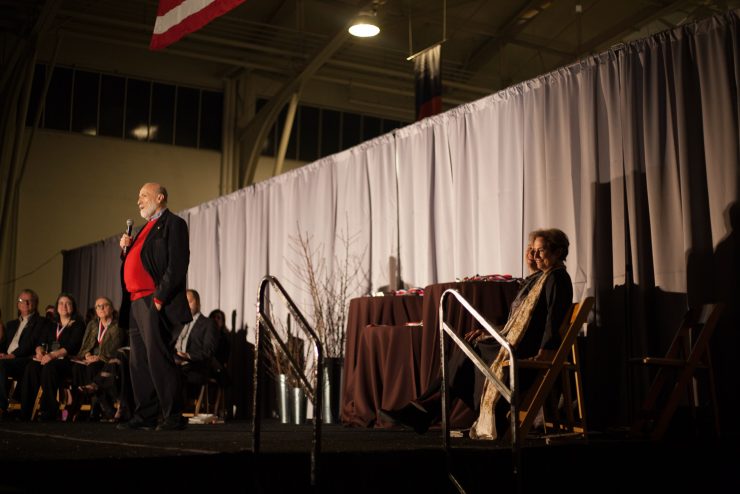
And rightly so. In 1986, in the Italian city of Bra, Petrini, a former political activist, fought to establish an alternative to the rising acceptance of fast food across Europe. 20 years later, the 66-year old Petrini bounced around the stage, hands flailing energetically as, through a translator, he espoused the greater picture of what the Slow Food movement, and those in the audience and onstage, were giving back to. Petrini argued that the work being done by those winners at the Good Food Awards was much bigger than just selling a product; that instead it created a network and a community of solidarity that in its own way, stood against the stark issues of our global community, big evils like war, injustice, and poverty, to name just a few.
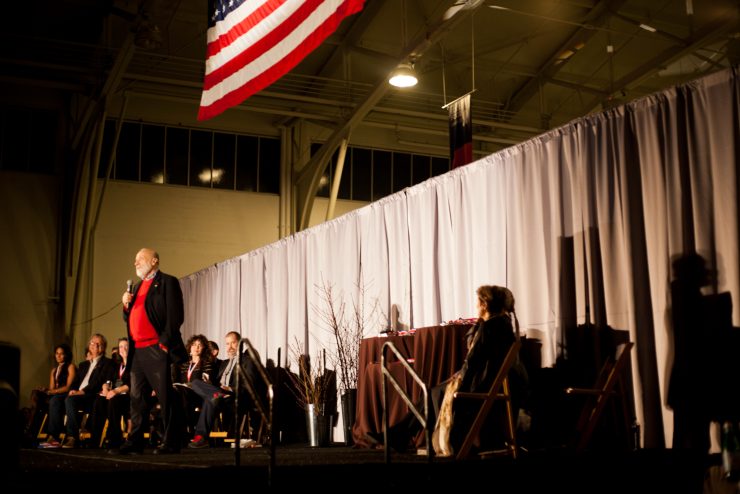
He talked of the economics of producing food, encouraging producers to look past the lure of riches, arguing that a good, worthwhile life could be found by simply being aware of having enough. And though not everyone in the audience would likely be millionaires, Petrini told those in attendance that the work they were doing was more worthwhile than untold amounts of cash. That it was their responsibility—everyone’s responsibility—to be proud of their skills and to use those skills, whatever they may be to give back to the community, and that in this spirit they would find all the happiness they could ever need. Before he stepped offstage, to another thunderous standing ovation, Petrini placed a responsibility on everyone, relaying through his translator, that those who sat before him were more than just food producers: they were “intermediaries between Earth and humans, Earth and the sky.”
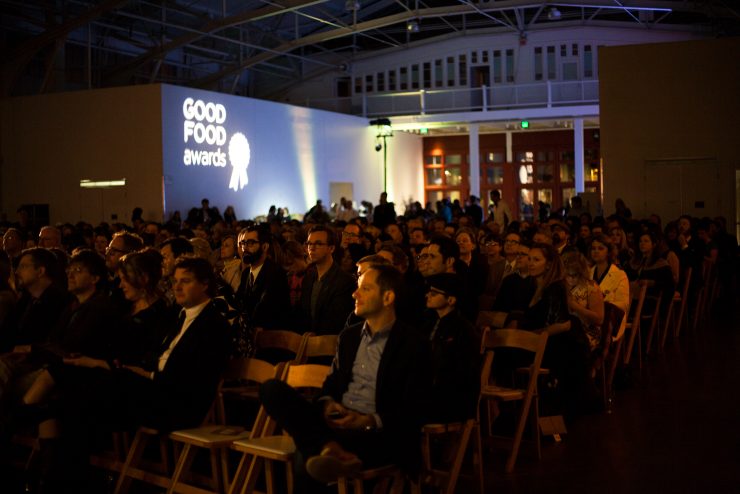
If Petrini was able to paint the larger picture of what the collected group was helping to create, it was Audra Lawlor of Washington’s Girl Meets Dirt, a winner (for her Shiro Plum and Mint Jam) and the presenting speaker for the Preserves Category that made it abundantly clear just how important good food could be. In her speech, Lawlor talked about her decision, after 10 years on Wall Street, to put down her stock reports and move across country to the San Juan Islands to start a jam company. Her frank and heart-rending speech, with its mention of miscarriages and repeated metaphors for the beauty and mystery of the natural world, helped to evocatively land the message first conveyed by Mr. Petrini. Because as Audra Lawlor stood onstage, preaching the power of food, at home, her one-year-old child awaited her back on Orcas Island. And that, above anything else—our responsibility as humans to the Earth, and vice versa—is what the Good Food Awards have the power prove: that good food, and the simple, slow creation of it, can be a meaningful and integral part of the human experience, even in the most trying of times. Where Petrini showed us the larger picture, Audra Lawlor showed just how important an individual can be.
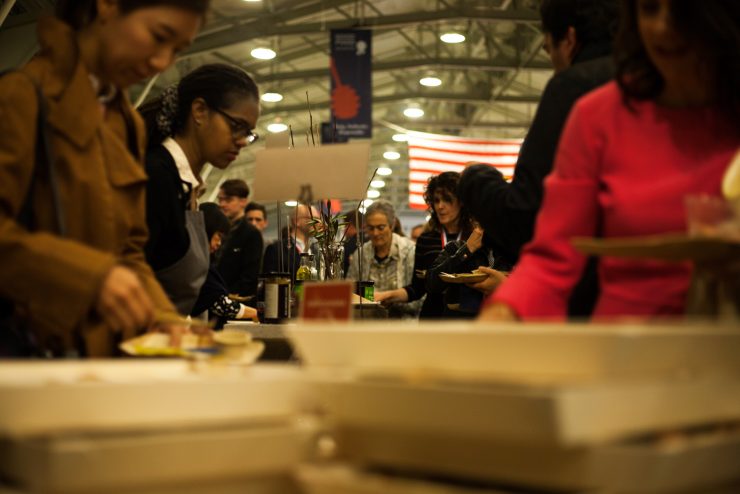
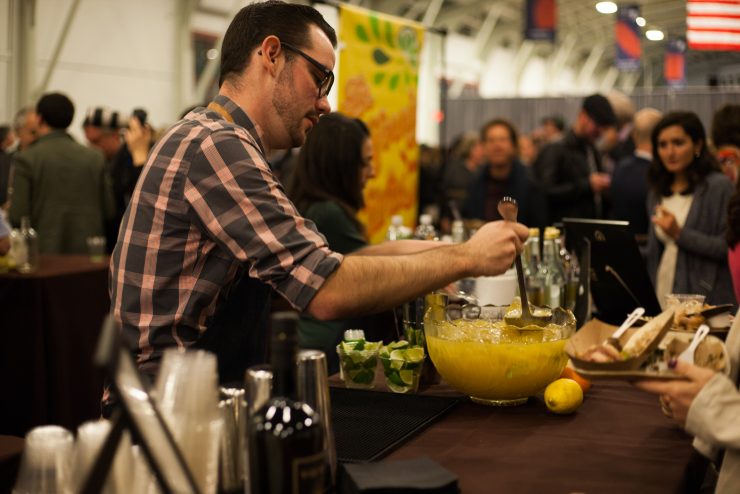
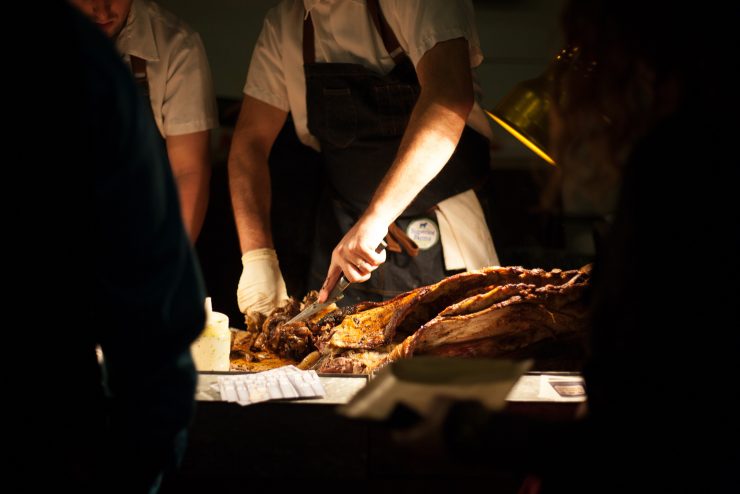
The banquet after the awards is many things, first and foremost a bacchanalia of foods from the many producers onsite. Imagine piles of charcuterie and sweets, local chefs carving up whole roasted pigs, beautifully prepared drip coffee from all over the country (Dallas, Texas-based roaster Oak Cliff Coffee’s Panama Carmen Geisha was this writer’s favorite of the evening), bottles and bottles of cider and beer, and a competitive baseball team’s worth of bartenders stirring up drinks, and you’ll have some idea of what sort of feast this event is.
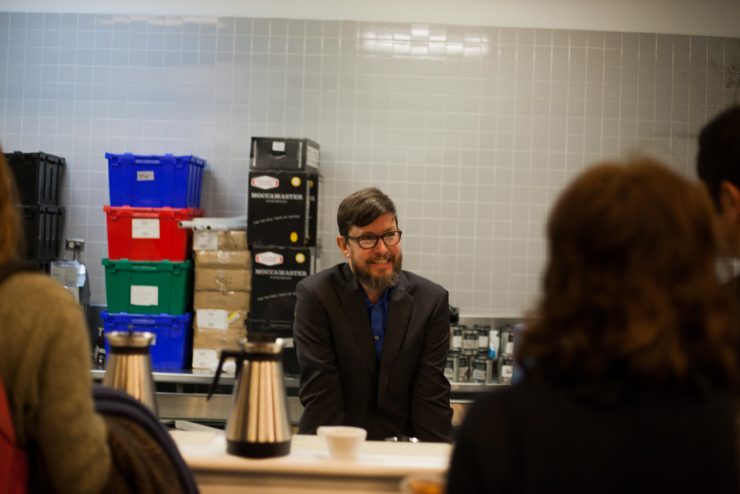
Year in and year out, some of America’s best coffee roasters are being given a seat at this particularly lovely table, part of a community of hard-working, exceptionally dedicated people who deserve to be celebrated. But at the end of it all, when your stomach stands bemused from a combination of ten types of cider mixed with roast lamb from Souvla, it isn’t the food that matters at all. Throughout the night I had memorable interactions with strangers, food lovers, and producers, all from this special community of Slow Food true believers. The support and warmth on display here may be driven by what’s delicious, but it’s about so much more than just food.
Noah Sanders (@sandersnoah) is Sprudge.com staff writer based in San Francisco. Read more Noah Sanders on Sprudge.
A complete list of coffee winners from the 2016 Good Food Awards is available here.
Sprudge.com is a proud media partner of the Good Food Awards. Read more Good Food Awards coverage on Sprudge.
The post Coffee, Food, And Life Itself At The Good Food Awards appeared first on Sprudge.

